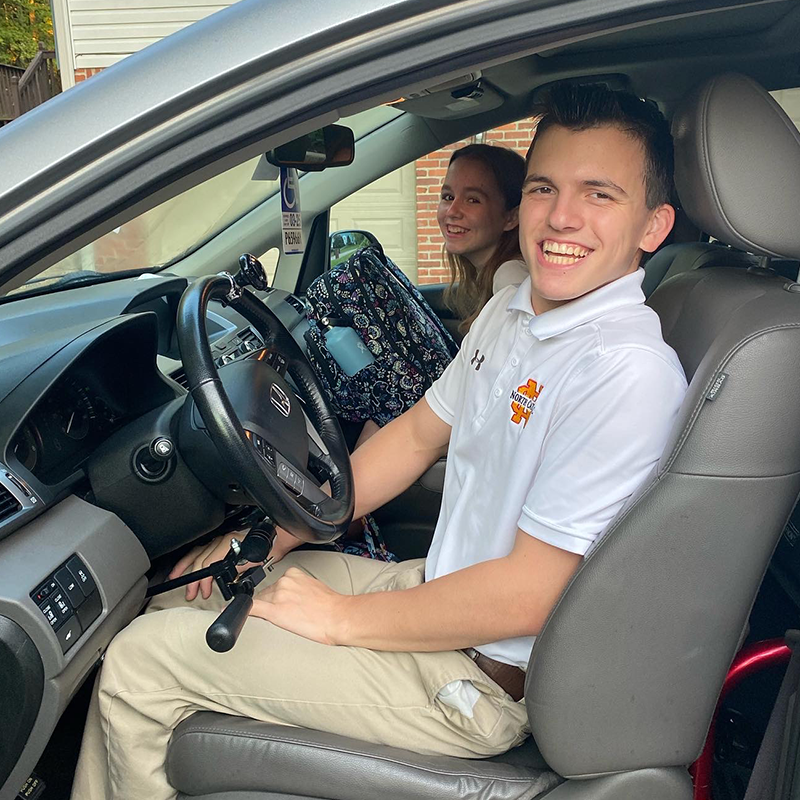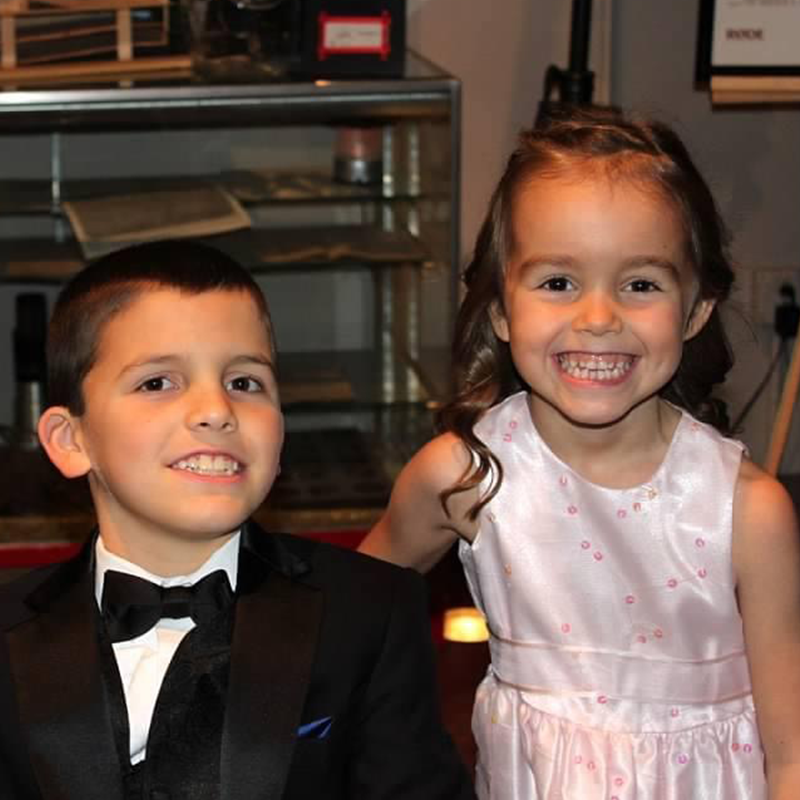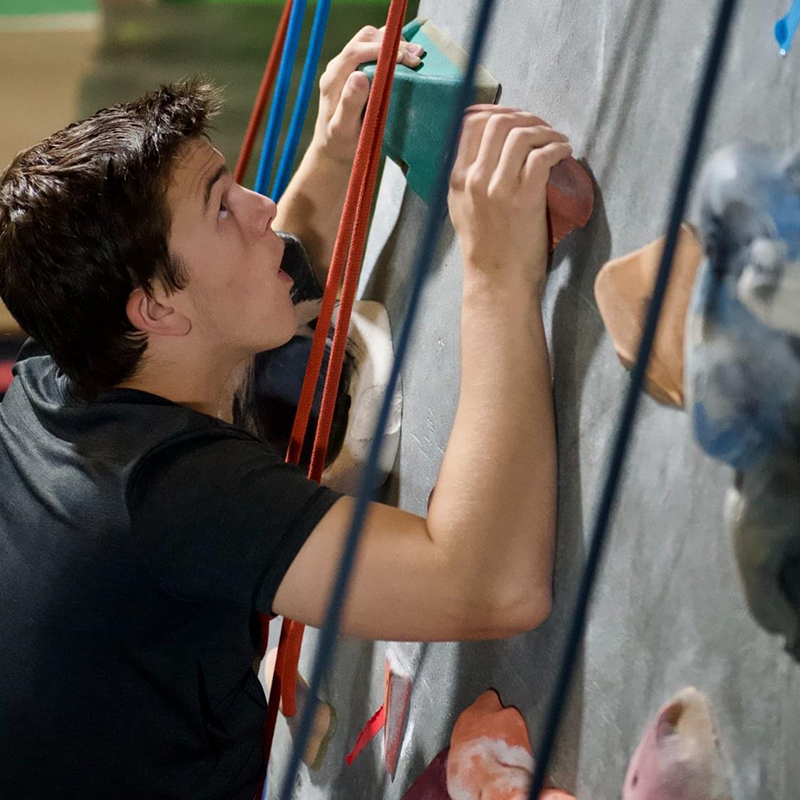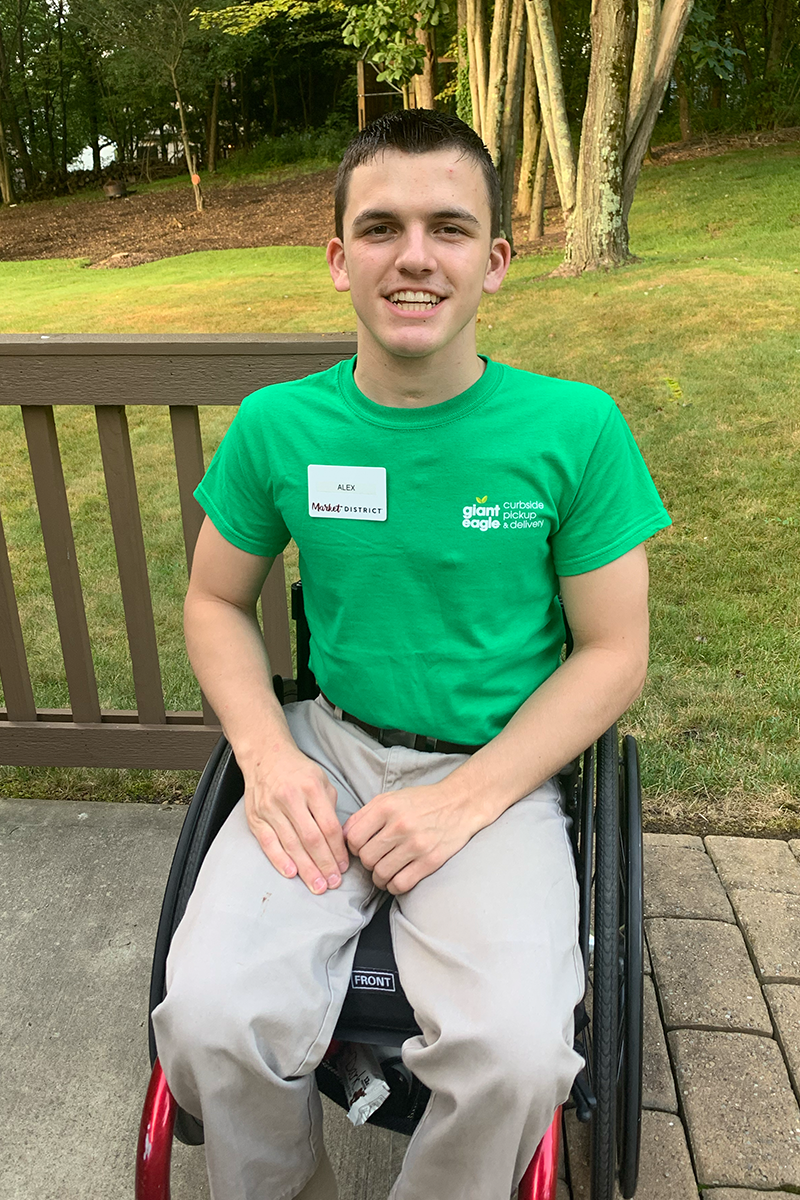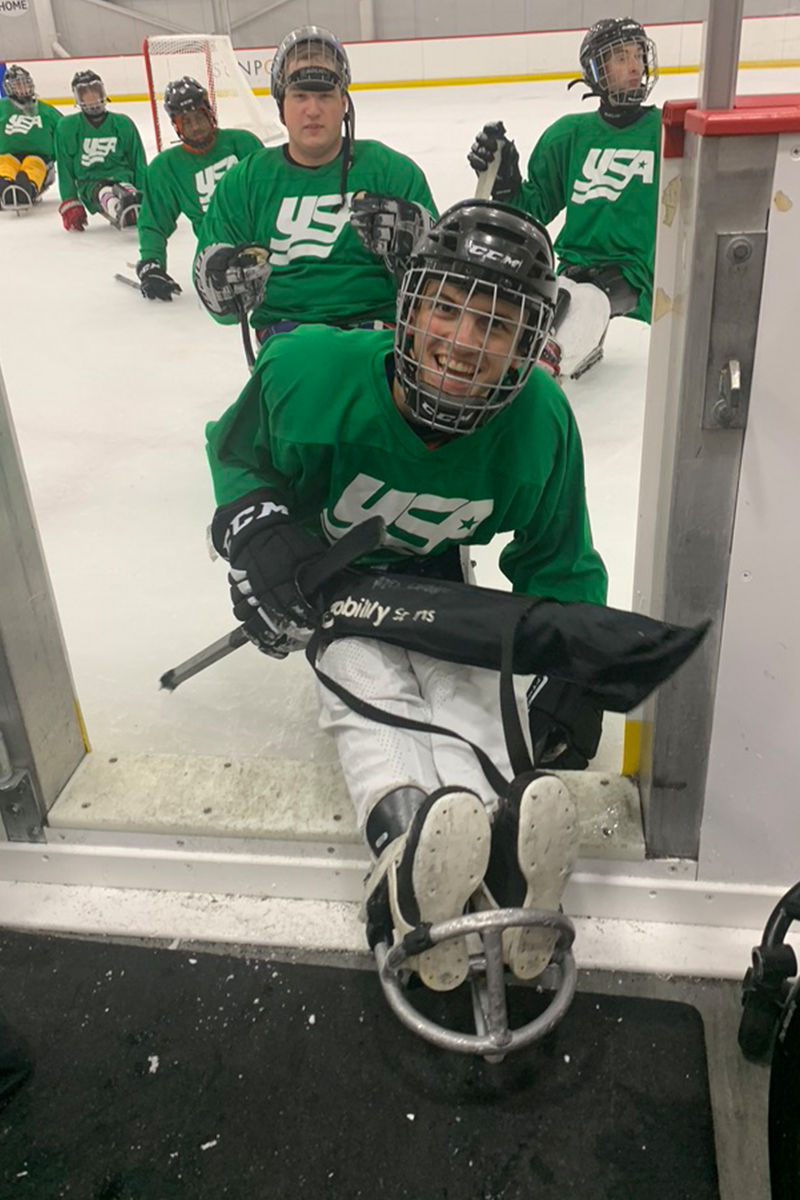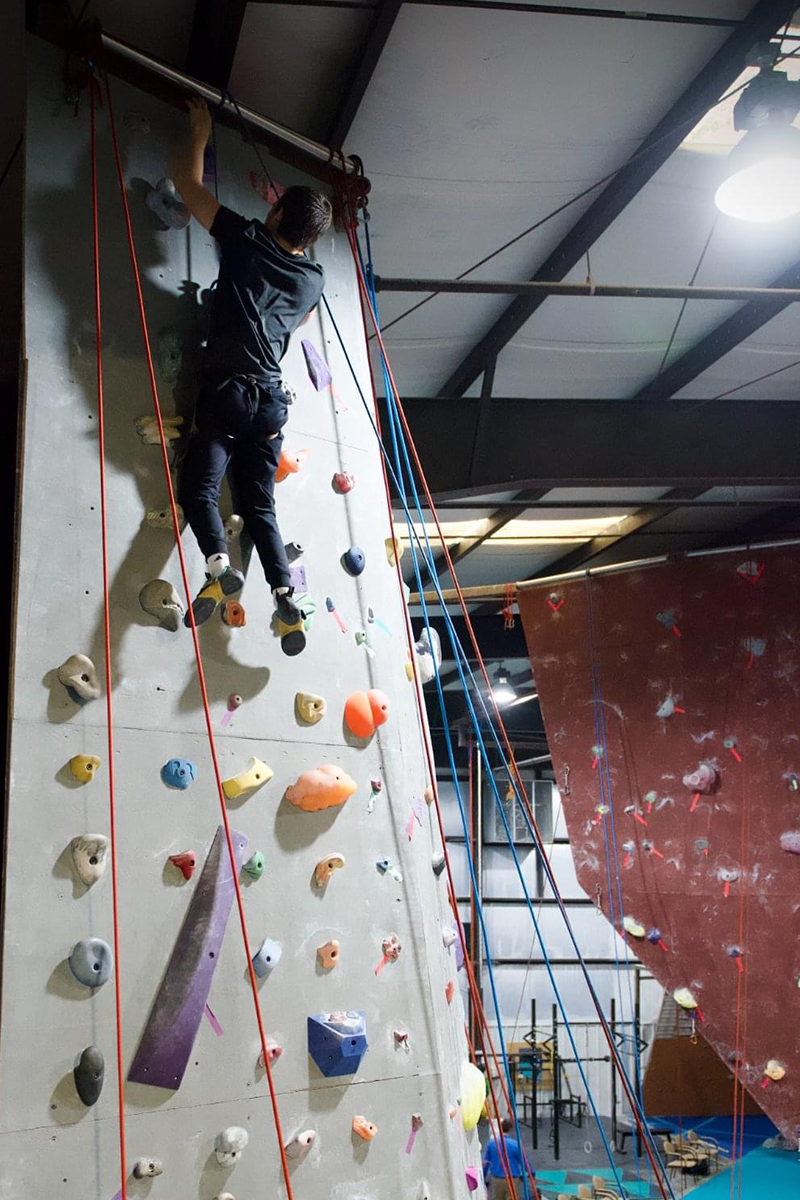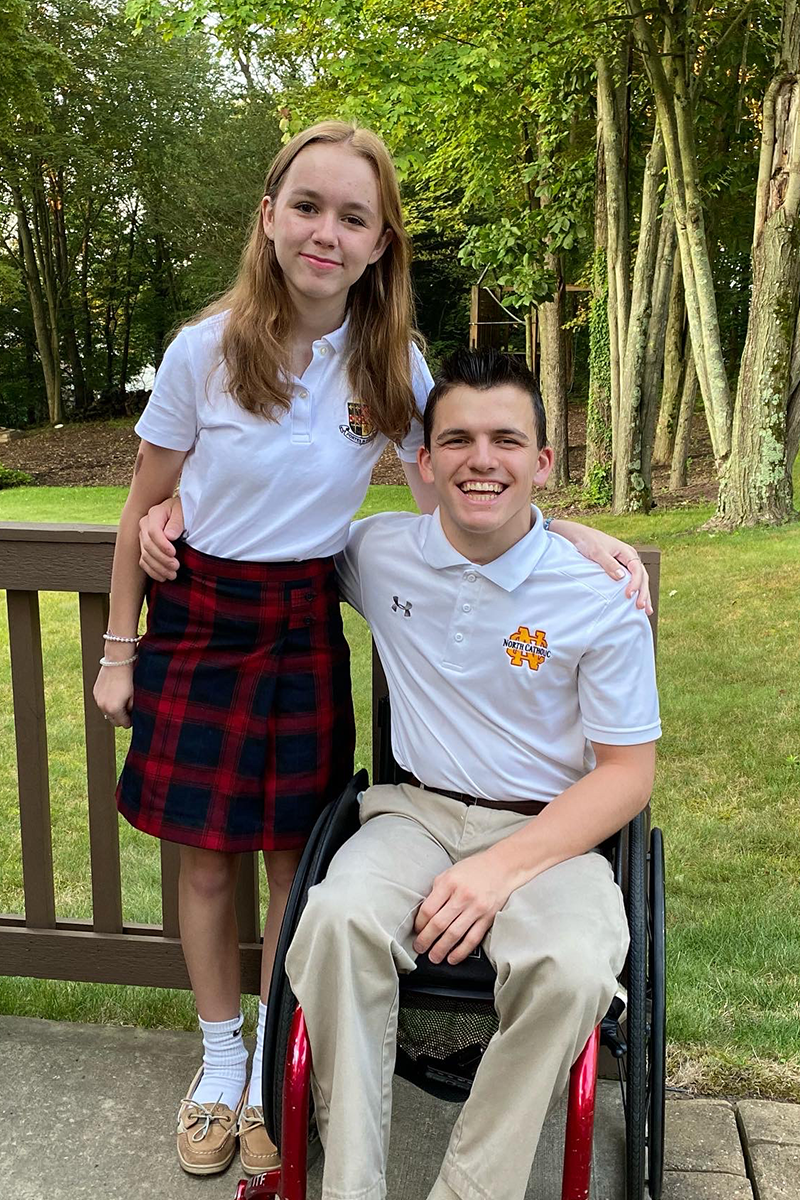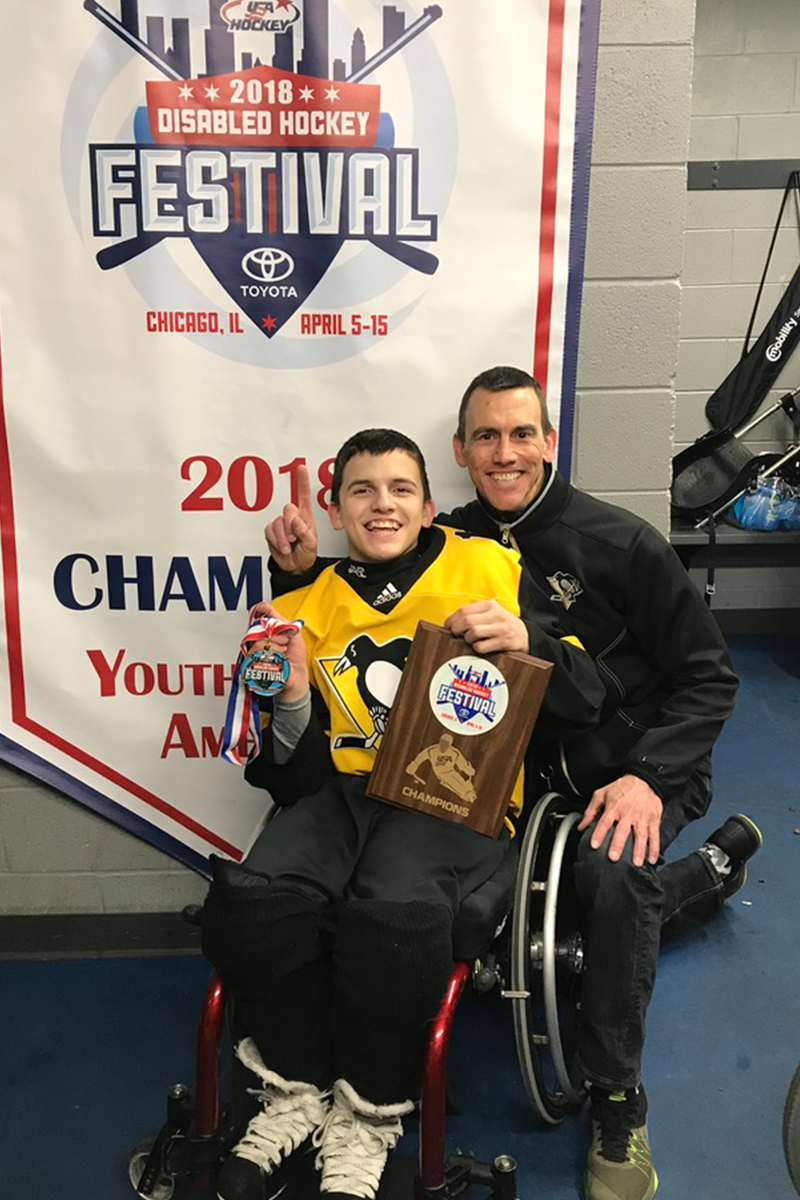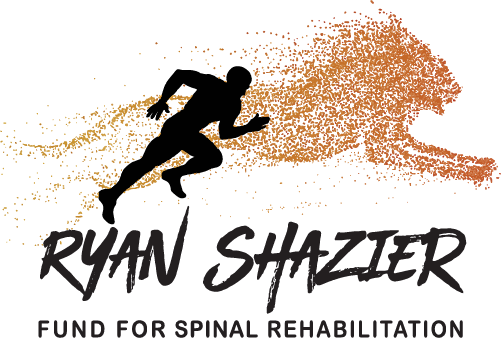Amy Brown’s four-year-old son suffered a devastating spinal cord injury. Yet she never wavered.
In 2009, four-year-old Alex Brown suffered a spontaneous spinal epidural hematoma. Two days later, Alex had a spinal cord stroke. And young mom Amy Brown became more than a mom: She donned the dual mantels of “caregiver” and “advocate.”
Life Is Good!
In 2009, The Brown Family was living life large. They were very happy. “And very busy!” exclaims Amy Brown. At that time, she was a full-time corporate recruiter for Dick’s Sporting Goods, and her husband, Eric, was a teacher. “We had two little kids,” adds Brown. “Alex was our oldest–he was four, and our daughter was 21 months old.” But, she says, it was a “good busy.” Four-year-old Alex was starting ice skating lessons. “He wanted to be a hockey player,” she trails off…” and that’s just about when everything went upside down.” Like legions of working parents, Amy and Eric split daycare drop-off and pick-up duties, with Eric, a schoolteacher, picking the children up in the afternoon.
Unusual Evening
But that afternoon was different. The daycare staff told Eric that Alex’s neck had been tilted to the side, but they didn’t call anyone as it didn’t seem to trouble Alex. But as the evening progressed, Eric called Amy and urged her not to work late. “Eric said that Alex’s neck was bent to the side during a kickball game, and he said it hurt,” Amy recalls. But Alex was an active kid; the Browns thought he had strained his neck. “And then Alex woke up in the middle of the night, and he couldn’t get up, but we didn’t know that!” exclaims Brown. “We thought he was just exhausted, so we brought him into our bed,” she continues. Alex said his hands and feet felt big. “I remember touching them and thinking that something might be happening, but at the same time, I’m a mom, so I comforted him, and he fell asleep,” she says.
The (Caregiver) Journey Begins
The following day, Alex couldn’t move. Brown snugged Alex into his car seat. Amy’s father came to watch their daughter. And she and Eric drove Alex to the Children’s Hospital of Pittsburgh. “I didn’t even know what I was doing, so I carried him in,” Brown says. “They needed him to get on the scale,” she remembers. “I said, ‘Well, he can’t stand!’ And they said, ‘Well, he’s going to need a lot of tests!’” Brown recounts that she almost shouted, “Well, he does, so just get it done! And it was at that moment that Amy Brown became a full-time caregiver for her son.
Two Rare Medical Events
After several inconclusive tests, Alex was given an MRI and rushed into surgery. Little Alex suffered a spontaneous spinal epidural hematoma. “It was like a baseball was hit, line drive, to his neck,” explains Brown. “The surgeons said the explosion of blood was something they don’t normally see unless there is trauma, like a car accident.” But Alex had no trauma. To evacuate the bleed, surgeons had to remove Alex’s vertebrae from C3–C5 and install metal plates, according to Brown. And then, two days later, Alex was paralyzed again from a spinal cord stroke.
A Caregiver is Made
After the stroke, he had a tracheotomy and was on a ventilator, and was given a 10-20% chance to live. The Browns spent from October 2009 through May 2010 at Children’s Hospital. “It was like a living hour–to–hour,” Brown sighs. “We didn’t know what was going on the whole time.” When Alex finally came home, he still had his tracheotomy and a feeding tube because he wasn’t eating very much by mouth. “I suddenly had to become an LPN!” laughs Brown, admitting that was something she did not want to pursue in college. “I don’t like that kind of stuff, but that was something I had to do for Alex.” And just like that, Amy Brown’s life pivoted: from working wife and mom to wife, mom, caregiver, and advocate. “I had to take care of him,” Brown says of Alex. She learned the trach, vent, and feeding tube mechanics in her early years. “Oh, by the way? Alex could talk with the ventilator in,” offers Brown. “They don’t know why, but my kid? He could talk over it!” As a caregiver and advocate for her son, Brown’s early days with Alex’s condition were spent going to therapy and “still trying to figure it out,” she says. “We didn’t even know what we needed.”
Pediatric Pioneer
Through her advocacy, Brown found the Kennedy Krieger Institute, and they accepted Alex into its pediatric program in Louisville, KY. “They are the only place in the world researching pediatric patients with spinal cord injuries, and Alex is one of their first patients,” she says proudly. The Brown family has been making trips to Louisville every summer, staying in the Ronald McDonald House. “The (intensive) therapy It’s helped a lot. For instance, they gave us a therapy as an alternative to braces,” says Brown. Today, Alex can move every part of his body from down to his toes. “He has feeling now,” says Brown. “Admittedly, these were things that came back over time.” And since Alex was one of their first pediatric spinal cord patients, he is part of their research studies with transcutaneous stimulation. In addition to caring for and advocating for Alex’s physical programs, Brown was able to wean Alex off all but two medications.
Pluses and minuses
Looking back, Brown says caring for Alex and becoming an advocate for him and others has positively affected her. “But if I look back at things, it did affect me–the stress of everything,” Brown admits. “When my daughter was turning four, I was away with Alex at Kennedy Krieger for two weeks,” she recounts. While there, she started getting weird symptoms. “I had to keep going,” Brown continues. At the end of the two weeks, she and Alex drove the four hours home. “When I got home, I said, ‘Eric, I have to go to the ER; I don’t know what’s going on with me.’” After thorough testing, Amy Brown was diagnosed with multiple sclerosis. “I feel the MS is because of the lack of care I was doing for myself, the stress and even my daughter was turning four–the same age Alex was when he got sick.”
Caring for Yourself
Eric Brown, Amy’s husband, encouraged her to attack her MS diagnosis as she did with Alex’s diagnosis.“And I hadn’t even thought of that because I didn’t take time for myself, even for this, like, you know, I was just doing what I could,” admits Brown.She took a step back and went to a functional medicine doctor. “I’ve been treating my MS naturally for nine years without any symptoms.
Life Is Good…Again!
It’s been 13 years since Alex’s illness and paralysis, and the Brown Family is living life large once again. “Actually, life has been good for a while!” says Brown. Alex drives independently, so he drives his sister to school. “Alex is big into adaptive sports and plays for the Mighty Penguins sled hockey team,” says Brown. He is also the play-by-play announcer for the high school sports teams. “Our daughter is very musical. She’s heavily involved in musical things and singing.” Additionally, Alex is on the high school track team.
Amy Brown is back to work full-time at Dick’s. Shortly after Alex’s illness, she returned to work with the company on a ten-hour/week basis. She continues to advocate for caregivers and patients by serving with The Ryan Shazier Fund for Spinal Rehabilitation’s Working Groups. As for Eric Brown? He continues to keep the home fires burning as an educator. But now, with his children active and independent, Amy says he asks, “Where do I need to be today?”
Shalieve
Wisdom
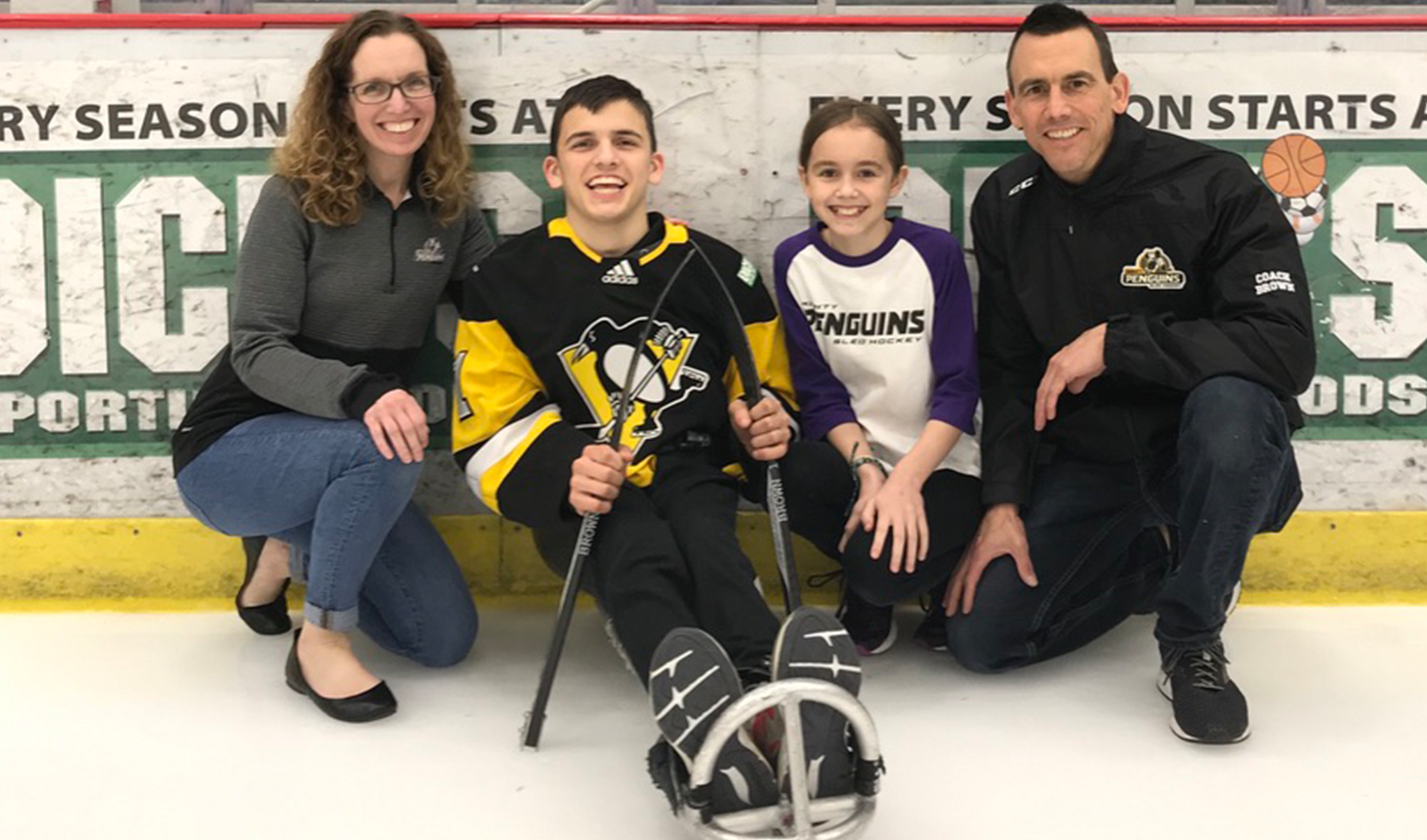
Rise Again!
When Alex Brown suffered his traumatic spinal cord injury, the Browns didn't know anyone with a spinal cord injury, especially a child as young as Alex.
“There wasn't any information out there,” explains Amy Brown. As she gathered resources, she wanted to create a resource for others.
And Rise Again was formed by The Browns. Rise Again is a non-profit charitable organization that supports individuals with spinal cord injuries and the professionals that work with them.
Amy Brown derives great joy through Rise Again, of which she is a founder. “If someone calls me with a certain situation, I can connect that person with someone in our database with a similar situation,” she says.
“We just awarded a family $800, and the mom was just so excited as it will go toward their last physical therapy appointment,” says Brown. “It's nice to be a part of something positive.”



